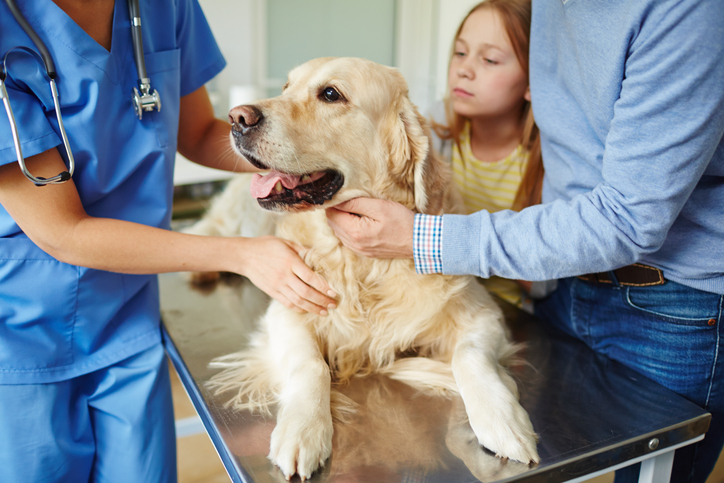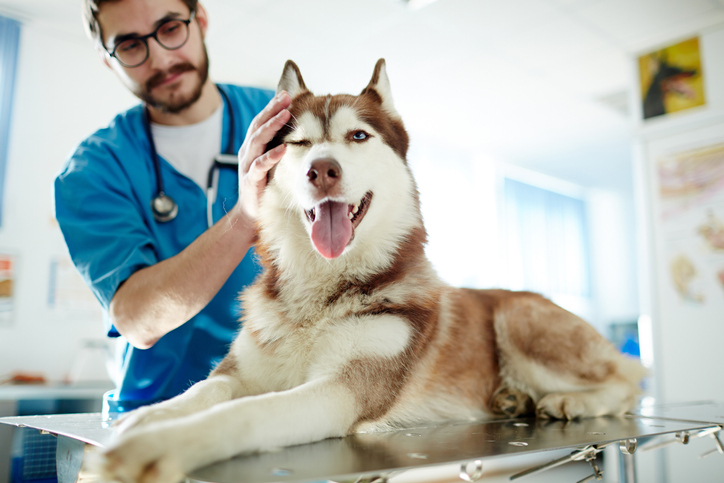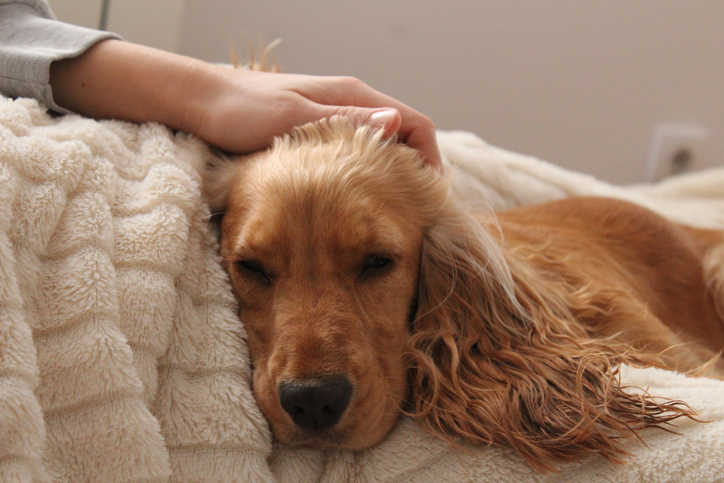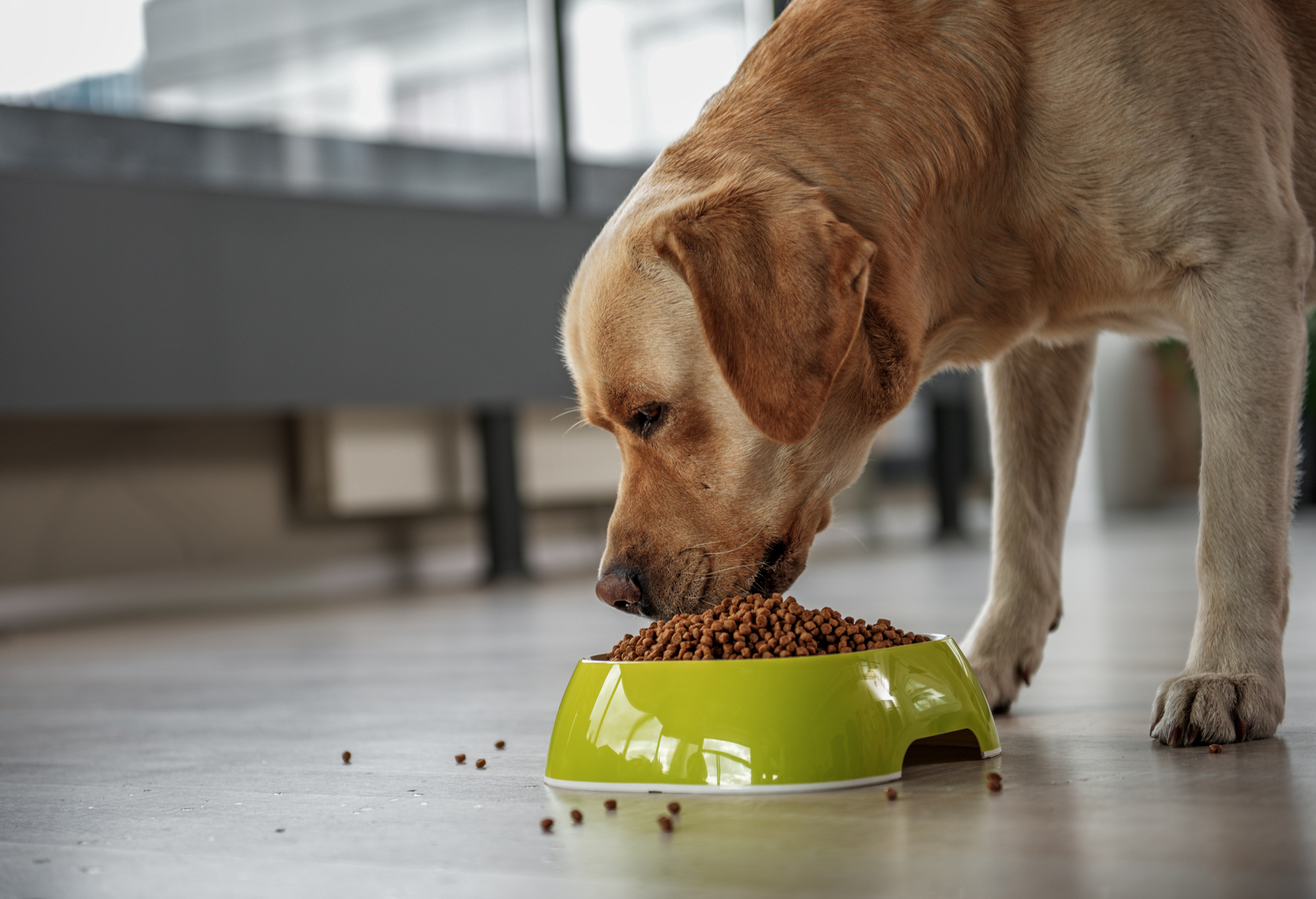Using brain food to help treat your pet’s CDS
2nd October, 2019

Do you share your home with a pet cat or dog? Have you noticed a change in their behaviour recently? Perhaps they seem confused, disoriented or lost in a usually familiar place? Or maybe they’ve started having little ‘accidents’ despite having been house trained for their whole life?
If you’ve observed one or more of these changes in your older cat or dog, they may be suffering from CDS – cognitive dysfunction syndrome.
To date, age is the only recurring factor that is recognised in relation to CDS. Research shows that more than 30% of otherwise healthy cats aged between 11 and 21 display changes in their behaviour which are associated with CDS.
In dogs, more than 28% aged 11 to 12 and display at least one symptom of CDS.
CDS is linked to the build-up of proteins in the brain and has been compared to human conditions like dementia and Alzheimer’s disease.
Unfortunately, it can’t be cured, but don’t worry – there are plenty of ways to treat it, many of which can help to reduce the symptoms and slow down how quickly the illness progresses.
Are you already a pet owner? Or are you thinking about rescuing a cat or dog from the local animal shelter?
Either way, it’s important to remember that CDS is just one health condition that could affect your pet as they get older. Sadly, it’s not unusual for elderly pets to experience problems with their health.
Be prepared for the future by arranging a pet insurance policy – it could help you to avoid having to face costly vet bills should the worst happen.

How will I know my pet has CDS?
Use the acronymDISHA to help you spot the signs:
D is for Disorientation
Do they look confused?
I is for Interactions
Is your pet acting differently with people or pets they’re familiar with?
S is for Sleep
They may start to sleep more during the day and less at night. They might also be more vocal at night, with increased levels of barking, howling or meowing for no obvious reason.
H is for House training
Are they starting to have toilet ‘accidents’ like forgetting where to find the litter tray or cat flap, going to the toilet inside the house or asking to go outside at different times than they usually would.
A is for Activity
Are they becoming more (or less) active than usual? You might also notice they start pacing.
In addition to the DISHA signs, you should also look out for:
- Increasing levels of separation anxiety – becoming very upset when they are apart from you or at home alone
- Forgetfulness – not responding to commands as they usually would, difficulty learning or remembering things (e.g. tricks they used to perform)
- Behavioural changes – they might seem withdrawn, sad or forgetful. They may even show unusual signs of aggression if they are very confused.
- Appetite changes – eating more or less than they usually would.
- In cats, you should also look out for a reduction in their grooming routine. Cats are clean creatures, so any change to this should be a cause for concern.
What should I do if I am worried my pet might have CDS?
The most important thing to do is to book an appointment with your vet as soon as possible.
Additionally, if you have a policy with Purely Pets Insurance, you’ll be able to phone the 24-Hour Vet Helpline for advice while you’re waiting for an appointment.
All calls are handled by RCVS (Royal College of Veterinary Surgeons) nurses who have at least three years of practical experience.
They will probably still recommend you take your pet to see the vet, but they may be able to give you some advice on how to manage the symptoms in the meantime.
You should also bear in mind that many of the behavioural symptoms of CDS can be caused by other health issues.
For example, your pet may be suffering from thyroid problems, diabetes, kidney disease, cancer, dental disease or sensory loss.
If it’s not CDS, there may be other treatment options you can consider, so it’s vital you get a proper diagnosis from a qualified veterinary professional.
To make a diagnosis, your vet will conduct a thorough examination including:
- Full physical and neurological checkup
- Orthopaedic assessment
- Pain examination
- Diagnostic testing including blood tests, biochemistry, urinalysis and blood pressure
- Radiography, endocrine tests, ultrasonography depending on the symptoms displayed

They will also have a detailed discussion with you to establish the symptoms your pet is displaying. You may find it useful to write the symptoms in a notebook before the appointment.
That way, you won’t forget anything that might be helpful or important in making a diagnosis.
If your vet rules out other health issues and confirms a diagnosis of CDS, they may be able to prescribe medication to reduce some of the signs.
Anipryl reduces free radicals and increases chemical messengers within the brain. More than 75% of dogs with CDS will improve after taking this medication for a month.
Vivitonin helps to improve blood flow to the brain, leading to increased oxygen levels and removal of waste products. Tests have shown it helps with lethargy and increases a dog’s willingness to exercise.
Both of these medications are suitable for cats and dogs, but they must be prescribed by a vet.
In addition to medication, your vet will also be able to provide advice on how you can help your pet to manage the condition. For example, they might recommend you do the following:
- Keep your pet’s living environment familiar. You should avoid moving furniture or other items around the house, as this may confuse your cat or dog.
- Stay calm and don’t get angry if your pet has an accident. It’s not their fault, and getting upset with them may cause them further stress and anxiety, leading to more accidents.
- Try putting some environmental cues in place. For example, you could try leaving a radio on in a room your pet spends lots of time in. This will help them to find their way there more easily.
- Ensure you and your family members remain positive, even though it can be upsetting when a pet seems to have forgotten who you are. Again, it’s important not to behave in a way which may cause your pet additional stress or anxiety.
- Try to keep your pet’s brain active through training (if they are still able to do this) or games.
- Use gentle training to help your pet remember where to go to the toilet or find their food bowl.
Understanding CDS
CDS is a complex condition which affects the blood-brain barrier. Animals and humans all have this barrier – it separates the brain from the circulation.
It also serves to help regulate the distribution of nutrients from the bloodstream to the brain cells.
When we (or our pets) get older, the barrier becomes weaker. This allows possibly harmful molecules to enter the brain tissue, which can contribute to a decline in cognition.
In addition, oxidative damage caused by regular metabolism results in the creation of ‘free radicals’. These are unstable atoms – if they enter the brain, they can cause nerve cell dysfunction or even death in severe cases.
These changes can lead to the display of physical and behavioural symptoms associated with CDS in pets.

Using diet to treat CDS in pets
Alongside things like medication and environmental adjustments, changes to your pet’s diet can be effective in the management of CDS.
Antioxidants can lower the number of free radicals and oxidants in your pet’s body tissue. Many antioxidants can be found in food, including:
- Vitamin C
- Vitamin E
- L-carnitine
- Selenium
- Flavonoids
- Carotenoids
- Alpha-lipoic acid
Studies show how the development of a specialised nutrient profile could lower the number of free radicals being produced, helping to slow down cognitive decline by reducing oxidative damage.
The research revealed a noticeable improvement to cognitive function (learning and memory) in older dogs who consumed food fortified with antioxidants.
Consumption of appropriate antioxidants appears to reduce the speed of cognitive decline in older dogs, and this happens fairly quickly if the dog responds positively to this approach.
As well as serving your dog or cat with food containing antioxidant ingredients, the following supplements can be a helpful addition to your ageing pet’s diet:
- Medium-Chain Triglycerides - can increase ketones in the blood which can be utilised to fuel brian functions.
- Omega-3 fatty acids - found in fish oils, these can have a positive impact on brain health, provide immune-system boosting benefits, reduce inflammation caused by arthritis and help with kidney function.
- Phosphatidylserine - can improve learning, memory and behaviour in cats and dogs
- Apoaequorin - has neuroprotective effects to improve learning and attention
- S-Adenosyl-l-Methionine - when pets age, their brain and liver functions may be negatively affected. SAMe helps to protect your pet’s brain and liver tissues from oxidative damage. It can also promote improvements in awareness and activity levels, which may help tackle personality changes caused by CDS.
- Probiotics - who would have thought these tiny bugs in our pet’s bodies could be so important? As your pet ages, these bacteria become imbalanced and this has an impact on their whole bodies. It could affect anything - from their immune system, digestion or even their behaviour. Find a product with a minimum of one billion bacteria (per dose). Lactobacillus and Bifidobacterium are the ingredients you need to look for – your vet will be able to point you in the right direction if you’re not sure.
Which pet food should I buy?

Below are some of the commercial pet foods which may be a good choice for pets suffering from the symptoms of CDS.
Don’t forget, it’s important to get a confirmed diagnosis from your vet before you commence any treatment plan, including any dietary changes.
Your vet will also be able to advise you on which food will suit your pet’s individual requirements. Never feed prescription pet food to your cat or dog without advice from your vet first.
For dogs:
- Hill’s™ Prescription Diet™ b/d™- ingredients like antioxidants and Omega-3 fatty acids help to maintain brain function. Can help maintain your older dog’s social interaction, learning ability and sleep pattern.
- Purina One® SmartBlend® Vibrant Maturity 7+ Senior Dog Food Formula - contains a blend of vitamins A & E, zinc, selenium and enhanced botanical oils. Claims to nourish your dog’s mind, helping him to think more as he did as a pup.
- Purina NC NeuroCare ™ Canine Formula - made with nutrients and medium-chain triglyceride oil to support brain health and immune system.
For cats:
- Hill’s ™ Prescription Diet ™ j/d ™ - formulated for cats showing signs of osteoarthritis, this food contains antioxidants and fatty acids which may be useful in the management of CDS.
- Purina One ® SmartBlend® Adult Cat Food - made with L-Carnitine which may be beneficial in the treatment of CDS.
- Solid Gold Furrever Young ™ - claims to help your cat feel young again, thanks to its blend of nutrients and superfoods.
Care for your pet with pet insurance
Pets quickly become part of the family - we get to know their personalities, their likes and dislikes and their favourite games.
Noticing a change in your furry friend’s health or demeanour can be worrying, not to mention expensive if a visit to the vet is required.
Having pet insurance in place can help to protect you from unplanned (and often high) vet bills. And with a policy through Purely Pets, you’ll have access to our 24-Hour Vet Helpline.
This allows you to chat with a qualified advisor, offering you the chance to find out whether your cat or dog needs to be seen by a vet.
Contact Purely Pets today to discuss your requirements and find the right pet insurance cover for your four-legged friend.
Our friendly customer service team are on hand to help, whether you need pet insurance for your pedigree puppy or lovable moggy.
Get a quote today.
Helpful Pages
Recent Posts
Pet Insurance Quote
- 98% claims paid *
- Claims paid directly to vets
- 24/7 vet video consultations
- Interest free monthly payments




